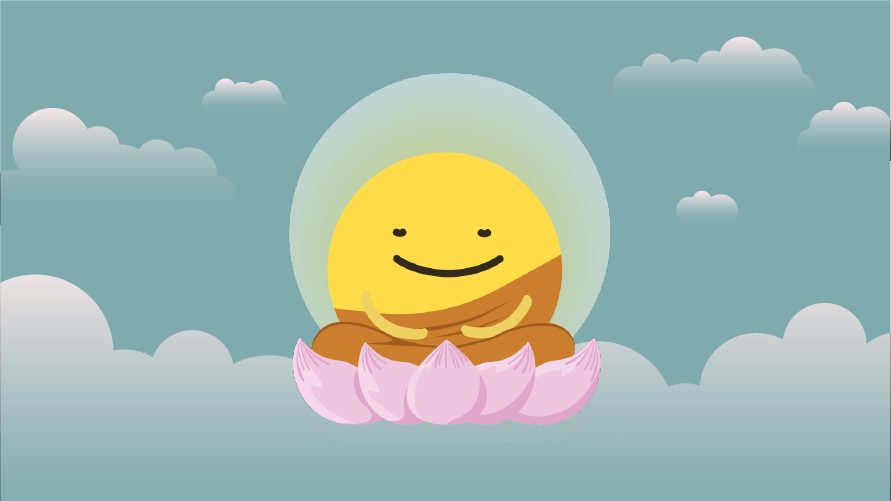Comprehensive Calendar for Buddhists in Singapore and Malaysia
Planning to start your new year with wholesome aspirations to deepen your spiritual practice? Consider leveraging the full moon, new moon days, and significant Buddhist holy days as milestones for your progress. HOL has launched a digital calendar that helps you get on track!
Here is a comprehensive list of special days celebrated or commemorated by Buddhists globally across the 3 main Buddhist traditions: Mahayana, Vajrayana, and Theravada. The calendar includes Buddhist religious holidays, lunar observance days, and holy days.
Check out the Important Buddhist dates in 2025 here >> bit.ly/hol-observance-guide-2025
| Date | Day | Lunar observance/Holy day |
| 11 Jan | Thursday | 🌑 New Moon |
| 18 Jan | Thursday | 🪷 8th Medicine Buddha Day |
| 25 Jan | Thursday | 🌕 Full Moon Mahayana New Year |
| 10 Feb | Saturday | 🌑 New Moon Maitreya Buddha’s Birthday(Chinese New Year/Tibetan New Year) |
| 15 Feb | Thursday | 🪷 Parinirvana Day |
| 24 Feb | Saturday | 🌕 Full Moon Māgha Pūjā |
| 10 Mar | Sunday | 🌑 New Moon |
| 17 Mar | Sunday | 🪷 Sakyamuni Renunciation Day |
| 24 Mar | Sunday | 🌕 Full Moon |
| 28 Mar | Thursday | 🪷 Birthday of Guan Yin/ Bodhisattva Avalokitesvara |
| 9 Apr | Tuesday | 🌑 New Moon |
| 23 Apr | Tuesday | 🌕 Full Moon |
| 8 May | Wednesday | 🌑 New Moon |
| 22 May | Wednesday | 🌕 Full Moon Vesākha Pūjā |
| 6 June | Thursday | 🌑 New Moon |
| 20 June | Thursday | 🌕 Full Moon |
| 6 Jul | Saturday | 🌑 New Moon |
| 20 Jul | Saturday | 🌕 Full Moon Āsāḷhā Pūjā/ Dhamma Day |
| 4 Aug | Sunday | 🌑 New Moon |
| 18 Aug | Sunday | 🌕 Full MoonUllambana |
| 3 Sept | Tuesday | 🌑 New Moon |
| 17 Sept | Tuesday | 🌕 Full Moon |
| 3 Oct | Thursday | 🌑 New Moon |
| 17 Oct | Thursday | 🌕 Full Moon Pravāraṇā & Abhidhamma Day |
| 1 Nov | Friday | 🌑 New Moon |
| 15 Nov | Friday | 🌕 Full Moon Loy Krathong Festival |
| 22 Nov | Friday | 🪷 Lhabab Düchen |
| 30 Nov | Saturday | 🌑 New Moon |
| 8 Dec | Sunday | 🪷 Bodhi Day |
| 15 Dec | Sunday | 🌕 Full Moon |
| 31 Dec | Tuesday | 🌑 New Moon |
Note: The dates in the lunar calendar are established through traditional calculation methods. Hence, there might be occasional discrepancies with precise astronomical events. The observance days for significant events such as Wesaka Puja, Asalha Puja, Magha Puja, and Pavarana, may vary across different countries.
Want quick access to these observance days?
Download the digital version of the 2024 Buddhist calendar here.
Why observe holy days?
Engaging in the observance of holy days within the Buddhist tradition serves as a profound catalyst for the enrichment of one’s spiritual practice. These sacred occasions present practitioners with a structured and significant opportunity to pause, reflect, and recalibrate their journey towards enlightenment.
On these days, Buddhists around the world would typically engage in activities such as making offerings and participating in prayers to demonstrate devotion. Many Buddhist practitioners would also take on the 5 precepts or 8 precepts, intensify their meditation practice, read the discourses, and listen to Dhamma talks to aid them in their spiritual growth. Temples, monasteries, and Buddhist centres would usually organise large-scale events on Holy days such as Vesak Day. Such events are great opportunities for Buddhists to cultivate their generosity through volunteering and donations to support wholesome efforts in propagating the Dhamma.

New moon and full moon days (Uposatha days)
The observing of new and full moon days is an ancient tradition. Due to the moon’s full size and radiant luminosity, the full moon day is considered the most auspicious among the four lunar phases. Therefore, the full moon days (Poya Days) were historically public holidays, emphasising spiritual pursuits, a tradition some Buddhist countries seek to reintroduce. Sri Lanka, for example, marks all full moon days as national public holidays.
The Buddha taught that on Uposatha days, to reap significant spiritual benefits (surpassing even the rewards of worldly kingship), one shall use proper technique for cleansing the defiled mind through recollections of the Tathagata (Buddha), the Dhamma, the Ariya Sangha, one’s own virtues, and the devas.
“As he is recollecting the (Tathagata, Dhamma, Sangha) his mind is cleansed, and joy arises; the defilements of his mind are abandoned.
AN 3.70
He is thus called a disciple of the noble ones… his mind is calmed, that joy arises, and that whatever defilements there are in his mind are abandoned.
This is how the defiled mind is cleansed through the proper technique.”
Buddhists also believe that full moon days, in particular, hold a special religious significance as they are believed to coincide with critical milestones such as the Buddha’s birth, renunciation, enlightenment, the delivery of his first sermon, and his Parinibbana.

Major Buddhist Events/Observance
Parinibbana Day (15 Feb 2024)
Mahayana Buddhist holiday celebrated in East Asia, Vietnam and the Philippines. It is to commemorate the passing away of the Shakyamuni Buddha when he attained complete Nibbana or Parinibbana.
On this day, before the Buddha’s passing into Parinirvana, his last words to his disciples were:
Behold now, bhikkhus, I exhort you: “All compounded things are subject to vanish. Strive with earnestness!”
DN 16
These poignant words emphasise the universal truth of impermanence (Anicca) and the transient nature of all phenomena.
The Buddha’s encouragement to strive with earnestness underscores the importance of diligent practice and mindfulness on the path to enlightenment.
The day serves as a reminder of the transformative potential within individuals to attain enlightenment and contribute to the well-being of all sentient beings.
Māgha Pūjā (24 Feb 2024)
Magha Puja, also known as Sangha Day, is a significant Buddhist festival commemorating a spontaneous gathering of 1,250 arahants (enlightened disciples) who assembled in the presence of the Buddha without prior arrangement.
This event occurred on the full moon day of the third lunar month in the Buddhist calendar.
The significance of Magha Puja lies in the purity and serendipity of the gathering, where the Buddha delivered the “Ovada Patimokkha,” a concise summary of ethical principles.
This teaching emphasises the importance of avoiding evil, doing good, and purifying the mind, encapsulating the core tenets of Buddhism.
Magha Puja serves as a reminder of the power of virtuous conduct, unity in the Sangha (monastic community), and the timeless wisdom encapsulated in the Buddha’s teachings.
Vesak Day/ Vesākha Pūjā (22 May 2024)
Vesak, also known as Buddha Purnima, commemorates the birth, enlightenment, and passing away (Parinirvana) of Siddhartha Gautama, who later became the Buddha.
Celebrated on the full moon day of the fourth lunar month, Vesak is a day of reflection on the Buddha’s teachings of compassion, wisdom, and peace.
Āsāḷhā Pūjā/ Dhamma Day (20 July 2024)
Asalha Puja falls on the full moon of the eighth lunar month.
It marks the day of the Buddha’s first sermon, Dhammacakkappavattana Sutta, setting in motion the Wheel of Dhamma.
On this occasion, the Buddha imparted the core essence of his teachings: Four Noble Truths and the Eightfold Path to the five ascetics.
During the discourse, Koṇḍañña, the eldest among them, became the first to reach enlightenment by comprehending the Dhamma.
The others soon followed, and together they became the Buddha’s first five disciples.
This event is significant in Buddhist history as the formal beginning of the monastic community and the spread of the Buddha’s teachings. Vassa, the rains retreat observed in Theravada tradition begins the day after Dhamma day.
Ullambana (18 August 2023)
Ullambana, also known as Obon or Hungry Ghost Festival, finds its origin in Buddhist and Taoist traditions.
Rooted in the Ullambana Sutra, the festival commemorates Venerable Maha Mongallana’s rescue of his mother from the hungry ghost realm.
This day is celebrated around mid-July to mid-August, dates vary among cultures.
Observed in China, Japan, and Vietnam, Ullambana involves offerings to ancestors and prayers for the deceased.
Devotees make symbolic gestures like food offerings and paper replicas. While paper replicas are integral to Chinese Taoist customs, they aren’t strictly part of Buddhist tradition. The festival signifies filial piety and compassion, emphasising addressing the needs of departed loved ones in their spiritual journey.
Ullambana stands as an important reminder of the cultivation of one’s virtues, such as generosity and contentment, in order to not be reborn in the lower realms.
Pravāraṇā Day (17 Oct 2024)
Pravāraṇā celebrates the end of Vassa (rains retreat).
Pravāraṇā means “inviting admonition.” This refers to inviting one’s fellow monastics to offer reprimands for any offences or misdeeds committed during the three-month retreat when monastics lived communally.
Abhidhamma Day (17 Oct 2024)
Abhidhamma Day, a revered Theravada Buddhist tradition in Myanmar, marks the Buddha’s ascent to Tavatimsa heaven to teach his mother the Abhidhamma.
The day, celebrated as the Festival of Light of Buddha’s Mother Day, commemorates Gautama Buddha’s descent from Tāvatiṃsa heaven after teaching his mother the Abhidhamma. This doctrine, found in the Abhidhamma Pitaka, delves into the profound moral psychology and philosophy of Buddha’s teachings, emphasising the nature of existence and the process of rebirth.
Wise Steps:
- Leverage observance days to renew your aspirations, reflect on teachings, and resolve to strengthen your practice.
- Download the digital calendar to be reminded of the observance days and take a mindful pause amidst your fast-paced life.
- Balance your faith with wisdom by learning about the meaning and significance.


